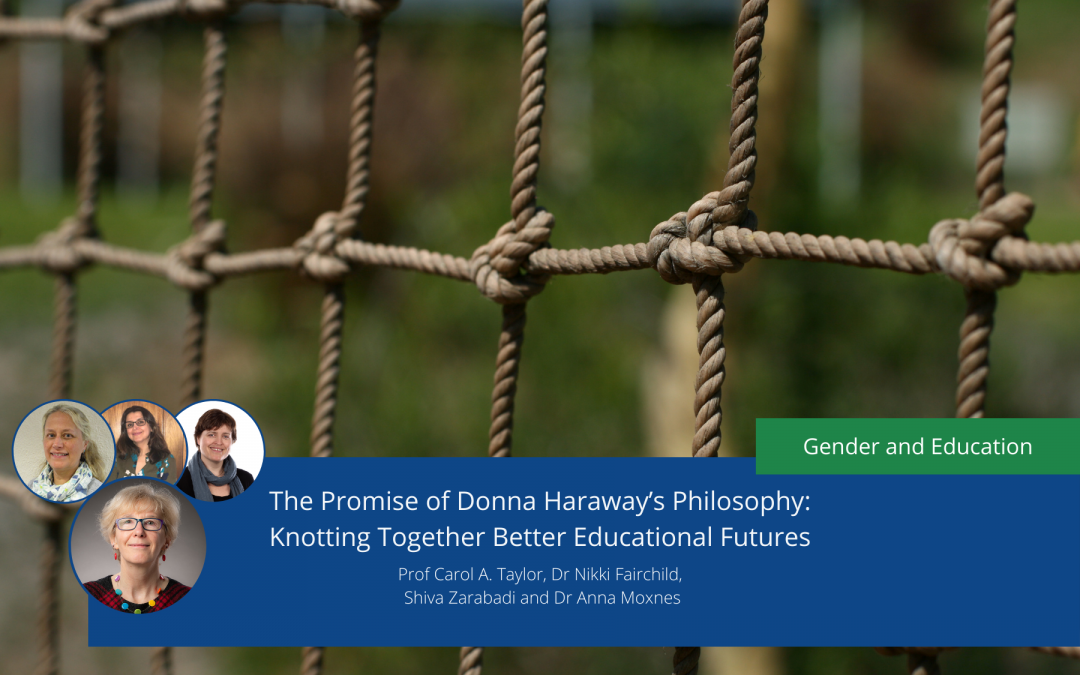As we have grappled with critical questions in our research and teaching, all of us contributing to this blog have been energised by Donna Haraway’s work. This blog explores the promise of Haraway’s philosophy for knowledge, learning and education. Donna Haraway’s philosophy offers conceptual and practical resources for navigating the complexities of contemporary educational problems.
Reconceptualising knowledge, learning and education with Donna Haraway
Haraway’s major early intervention was to challenge traditional notions of objectivity – which she called ‘the God trick’ (Haraway, 1988). She argued that objectivity was a Western masculinist, patriarchal tradition, which presumed researchers could be impartial, observe and produce ‘Truth’. This damaging fallacy has conferred epistemological status on science delegitimizing many other ways of knowing. Haraway opposes ‘the God trick’ with the concept and practice of ‘situated knowledges’ which pose a feminist critique demonstrating that knowledge practices are ‘political’ and that some knowledges have been (illegitimately) disqualified by dominant science. Recognising that all knowledge is located and relies on partial perspectives allows for the inclusion of lived material realities and feelings that shape our educational experiences.
The concept and practice of learning is central to Haraway’s oeuvre. Learning happens in the world, attending to our being-in-relation with the world and other species. Learning is an enactment: she calls it a ‘corporeal cognitive practice’ (Haraway, 2016a: 277), a material semiotic co-composition of relational acts of thinking and doing. Learning comes about through specific, mundane, embodied acts of communication that forge partial connections across the differences (of race, class, geography or species) that divide us.
Haraway’s philosophy, and its promise for education, demonstrates the need to move beyond human exceptionalism. It is an urgent call for us to take responsibility for how humans have produced alarming natural-cultural conditions, and to take action to address these. The task of shaping better human/planetary futures has been recognised as core to education as an ethical-political project (Strand, 2020). Haraway’s philosophy offers an affirmative biopolitics that can be useful in extending curricula on global education (Barratt Hacking and Taylor, 2020). Her transdisciplinary thinking, feminist situated ethics, and situated politics of knowledge might be the basis for renewing educational approaches for composing more relational futures.
How has Haraway’s philosophy been influential in our research?
Carol has taken up Haraway’s philosophy outlined in When Species Meet (2008) to rethink what comes to matter in educational relations. Her work addresses the question: How can multispecies knowings and matterings give us hope to build a better world for the future? Haraway (2008: 134) uses multispecies thinking to argue for ‘compassionate action’ to promote well-being for individuals, species and communities. Carol has considered how such thinking can be the foundation for different forms of educative flourishing by fashioning education as a form of posthuman Bildung that bring new possibilities for knowledge/praxis (Taylor, 2016). Carol has also considered how nonhuman-human relations can centre around play and pleasure in ways which make consequential differences in our lives as academics (Taylor, 2017).
Nikki (Fairchild, 2017) has drawn on The Cyborg Manifesto (1991) to reconceptualise young children’s gender identities. Haraway uses the cyborg both as figuration and ontological position to explore the breakdown and fluidity of technological, natural and cultural bodily boundaries. Nikki’s research shows how the cyborg figuration ‘moves beyond traditional notions of the feminine body’ (Benozzo et al., 2019: 89). Her doctoral thesis considered how girls are expected to perform and act in certain ways (Fairchild, 2017) and how the cyborg can ‘produce[s] new articulations of gender at the same time as making traditional gendered societal roles ‘available’’ (Taylor & Fairchild, 2020: 520). The cyborg subverts gender and provides new political possibilities for women.
In Staying with the Trouble, Haraway posits ‘lived storying’ (2016b: 150) as ‘the most powerful practice for… becoming-with each other’. Shiva has written of co-storytelling as a way of making-together, co-theorizing and co-enduring (Niccolini, Zarabadi & Ringrose, 2018). Lived storying foregrounds the care-full response-ability required when researching participants’ experiences. Towards the end of her PhD thesis writing, the COVID pandemic put the world into multiple lockdowns and made racism intelligible in new ways. Shiva’s PhD participants are from British Bangladeshi backgrounds, they live in overcrowded households and, like other BAME populations, suffer disproportionate social and educational inequalities (Booth, 2020). Their COVID storyings speak of histories of exclusion, troubled times and uncertain futures.
‘No adventurer should leave home without a sack’ writes Haraway (2016b: 40) in Staying with the Trouble. Haraway learned about the carrier bag theory of storytelling from Ursula Le Guin (1989). During her PhD, Anna experimented with a Bag-lady positionality (Moxnes, 2019), figuring herself as an (elderly) woman collecting whatever she found carrying everything with her in bags. For Anna, the carrier bag theory became a story of research, a methodological and methodic concept, a feminist force enabling her to do research differently. Carrier bag research provides a compass ‘to think otherwise’ – it changes our understandings of the world we live in and how we make meaning about it.
In our work together, Haraway’s philosophy gives us the courage to find philosophical and practical ways of troubling dominant educational thinking, research and writing (Zarabadi et al., 2019). Haraway’s philosophy informs our collaborative research experiments in theory, method and practice enabling us to continue to think of new ways to produce academic knowledge differently.
Some Final Thoughts
Haraway’s books are not easy, but they repay the focus, immersion and concentration needed. Haraway makes you think about how you can do research and teaching differently and in more creative ways. Her writing is an encouragement to slow down, ponder, not rush to action too quickly, and to focus on details and specificities. She offers intellectual resources to contest neoliberal imperatives of competitive individualism, performativity and measurement. Haraway’s philosophy provides a stimulus to new, creative, experimental ways of producing knowledge; her generative, ecological, life-affirming thinking offers important insights for reshaping educational thinking to contest the damages of the Anthropocene.
Citations and Further Reading
Situated Knowledges: The Science Question in Feminism and the Privilege of Partial Perspective – Haraway, 1988
Situated Knowledges – Monika Rogowska-Stangret
Manifestly Haraway – Haraway, 2016
Rethinking Ethical-Political Education – Strand, Torill
Reconceptualizing international mindedness in and for a posthuman world – Barratt Hacking and Taylor, 2020
When Species Meet – Haraway, 2008
Is a posthumanist Bildung possible? Reclaiming the promise of Bildung for contemporary higher education – Taylor, 2016
Producing Pleasure in the Contemporary University – Taylor, 2017
Earthworm disturbances: the reimagining of relations in Early Childhood Education and Care – Fairchild, 2017
Simians, Cyborgs, and Women (The Cyborg Manifesto) – Haraway, 1991
Disturbing the AcademicConferenceMachine: Post‐qualitative re‐turnings – Benozzo et al., 2019: 89
Towards a posthumanist institutional ethnography: viscous matterings and gendered bodies – Taylor and Fairchild, 2020
Staying with the Trouble – Haraway, 2016
Spinning Yarns: Affective Kinshipping as Posthuman Pedagogy – Niccolini, Zarabadi & Ringrose, 2018
BAME groups hit harder by Covid-19 than white people, UK study suggests
Dancing at the Edge of the World – Ursula Le Guin
Working Across/Within/Through Academic Conventions of Writing a Ph.D.: Stories About Writing a Feminist Thesis – Moxnes, 2019
Feeling Medusa: Tentacular Troubling of Academic Positionality, Recognition and Respectability – Zarabadi et al., 2019
Authors
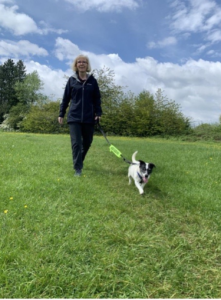
Professor Carol A. Taylor
Professor of Higher Education and Gender in the Department of Education, University of Bath
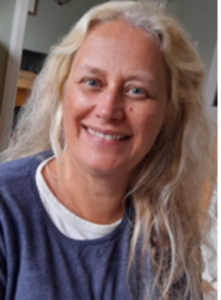
Dr Nikki Fairchild
Associate Professor in Creative Methodologies and Education at the School of Education, Languages and Linguistics, University of Portsmouth.
Dr Nikki Fairchild is an Associate Professor in Creative Methodologies and Education at the School of Education, Languages and Linguistics, University of Portsmouth. Her research is theoretically informed by critical feminist materialist, posthumanist, and agential realist theory. She employs creative methodologies to disturb knowledge production and relationality by entangling materiality, gender, place-spaces, time, temporality and (early) childhoods. She is an Associate Editor for the Journal of Posthumanism and on the Editorial Boards of Contemporary Issues in Early Childhood, Norland Educate Research Journal, and Gender and Education. Her latest book is Fairchild, N., Taylor, C.A., Benozzo, A., Carey, N., Koro, M., & Elmenhorst, C. (2022). Knowledge Production in Material Spaces: Disturbing Conferences and Composing Events. Routledge.
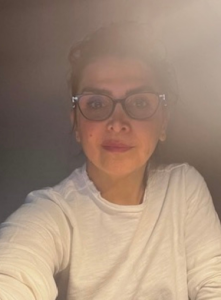
Dr Shiva Zarabadi
Dr Shiva Zarabadi holds a Ph.D. in Education, Gender, Feminist New Materialism and Posthumanism from UCL Institute of Education. Her research interests include feminist new materialism, posthumanism and intra-actions of matter, time, affect, space, humans and more-than-humans. She uses walking and photo-diary methodologies to map relational materialities in ordinary practices. She is the co-editor of the book Towards Posthumanism in Education: Theoretical Entanglements and Pedagogical Mappings (Routledge) and the author of ‘Bodies of Walking: Trans-Materializing the Experiences of Racial Harassment’ in Cultural Studies ↔ Critical Methodologies and ‘Watery assemblages: the affective and material swimming-becomings of a Muslim girl’s queer body with nature’ in Australian Journal of Environmental Education.
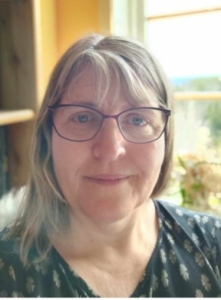
Dr Anna Moxnes
Associate Professor, Department of Early Childhood Teacher Education (ECTE), University of South-Eastern Norway

